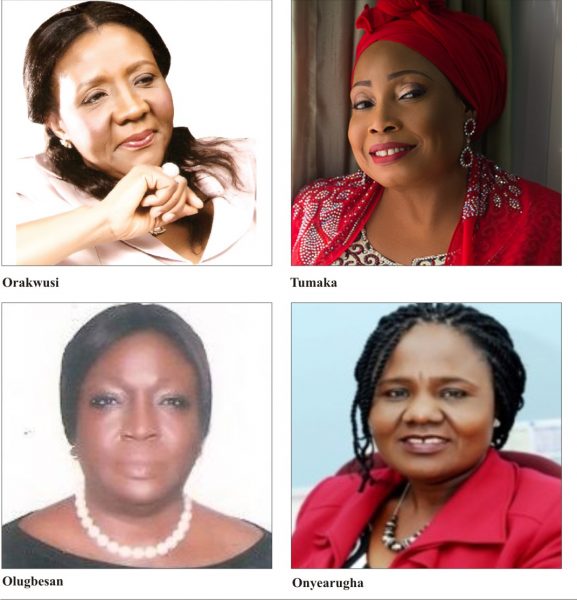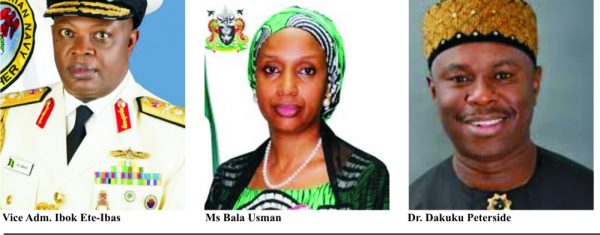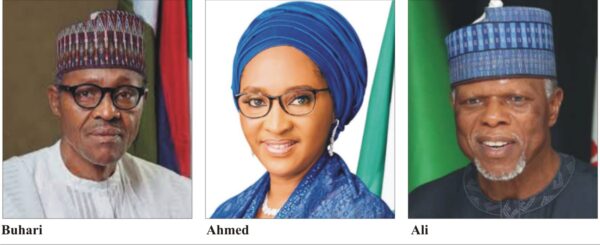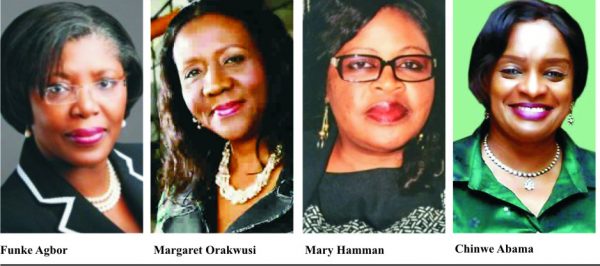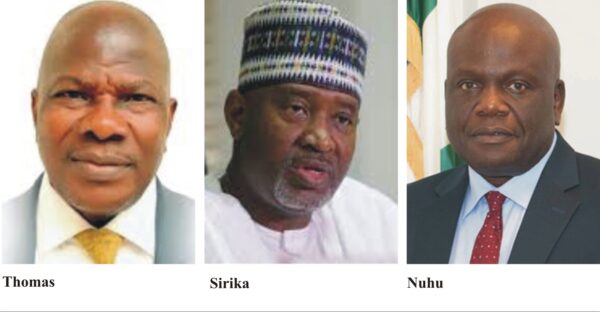Analyzing Nigeria’s 2025 Quest For Gender Balance In Aviation
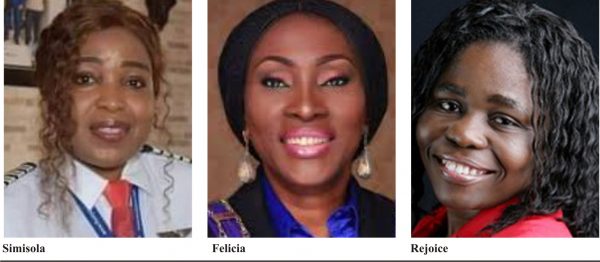
By Okuneye Moyosola
Women have played a pivotal role in the growth of aviation from the beginning, and particularly during times of war. They have piloted, built aircraft, and also created the systems that keep aircraft flying safely.
During IATA’s 2019 World Air Transport Summit, Air New Zealand’s CEO, Christopher Luxon challenged the industry to do more to advance gender diversity.
Improving gender diversity throughout the industry is needed because it has been proven that women have a place in a successful business. According to the McKinsey report “Women Matter”, ‘Companies where women are most strongly represented at board or top-management level are also the companies that perform best.”
Achieving gender equality and empowerment of all women and girls is one of the United Nation Sustainable Development Goals. While we know that some indicators of gender equality are progressing, there is a lot that needs to be done, especially with regards to providing all women with equal opportunities to advance their careers.
In order to increase the number of women stakeholders in aviation sectors, airlines under the aegis of the International Air Transport Association (IATA), have unanimously agreed to launch 25by2025. This is a campaign seeking for more women with sought after aviation technical and policy qualifications and experience in the aviation sector across the globe.
IATA, the clearing house for 290 airlines worldwide, is seeking an increase in the number of women in senior positions by either 25% against the currently reported metrics or to a minimum representation of 25% by 2025.
The airlines also sought to increase the number of women in under-represented jobs like pilots and operations by either 25% against currently reported metrics or to a minimum representation of 25% by 2025.
IATA member airlines that have already signed up to the 25by2025 Campaign include China Eastern, Lufthansa Group and Qatar Airways.
Expressing his confidence that the campaign would be a major catalyst for progress in aviation sectors across the globe, IATA’s Director General and CEO, Alexandre de Juniac, said aviation is the business of freedom, and an example of that is the freedom for 2.7 million women and men to develop exciting careers within this industry.
According to Juniac, women are under-represented at senior levels and in some professions within the airlines.
“Women are under-represented at senior levels and in some professions within airlines. Airlines understand the value that a diverse and gender-balanced workforce delivers. The 25by2025 Campaign provides a global context and encouragement for the many initiatives our members are already taking to address the gender imbalance.
“I am confident that 25by2025 will be a major catalyst for progress—progress that will set the industry up to achieve even more in this important area. Our work will not be done in 2025, in fact, this is only the beginning. Our aim is of course for a 50-50 gender split with equal opportunities for everyone in every part of our industry.”
The administrator of the Federal Aviation Administration (FAA), Steve Dickson in a statement said, “We need pilots, mechanics, engineers and many other professionals to enter the aviation profession pipeline, and I look forward to working with the secretary to boost the number of aviation professionals and keep our nation’s aviation industry strong and vital”.
Secretary of Transportation, United States, Elaine Chao also stressed that encouraging women to join aerospace could be vital to address a potential worldwide pilot shortage.
“Our nation is facing a shortage of pilots and aviation professionals; there are great opportunities in this sector, and we want to encourage more women to enter these exciting professions,” Chao says in a statement.
Although there is presently no comprehensive statistical gender data in the industry, the gender imbalance in the aviation industry cannot be overemphasized.
According to African Women in Science and Engineering (AWSE), a non-governmental organization devoted to the enhancement of the number of women in science and technology related careers through empowerment, women make up over 50% of the population of Africa and form the majority of the work force in most countries. However, the number of women in science and engineering, a category which aviation falls into, is still pathetically low, that is, below 20%.
In a bid to encourage the participation of more women in the aviation sector in Nigeria, in 2018, Air Peace launched its first all-female crew flight with its first female captain, Sinmisola Ajibola, in command.
The Boeing B737-300 aircraft with Capt. Simisola in command and copiloted by Senior First Officer Quincy took off from Lagos and landed in Abuja, from where it flew to Owerri before returning to Lagos.
The Chief Executive Officer of Air Peace, Mr Allen Onyema, said over 20 key positions in the airline, including those of the vice chairman, chief operating officer and chief of finance and administration, were occupied by women he said had demonstrated excellent capacity to deliver on their tasks.
The airline, he said, had employed about 2,000 workers since it commenced operations almost four years ago and about 1,500 of them were women.
“Air Peace is an airline run by women. We are very proud of giving women opportunities to excel because we believe that there is nothing men can do that women cannot do. We want to encourage our female children that they should aspire to be whatever they want to be by emulating what our female flight and cabin crew members have done today,’’ he said.
Meanwhile, the President, Women in Aviation, Mrs Rejoice Ndudunachi highlighted some of the careers available for women in the aviation sector, while encouraging more women to be bold and pick up careers as pilots, flight attendant, aircraft maintenance engineer, avionics engineer, air traffic controller, airport manager and flight dispatcher in order to key into IATA minimum representation of 25% of women by 2025.
Chief Engineer at the Nigerian Airspace Management Agency (NAMA) and President Association of Professional Women Engineers of Nigeria, (APWEN), Engr. Dr. Felicia Agubata while speaking to MMS Plus stressed the historical, socio-cultural and religious factors has not encouraged the participation of women in the sector.
“Gender imbalance in the aviation sector is a fact, and so is the under representation of women across most technical areas or sectors. The reasons for this are historical, socio-cultural and religious. Succinctly stated, the girl-child is neither given encouragement nor pre-disposed to higher education several years back. Our culture and religion envisaged ‘marriage, child bearing and raising of children’ as the career path for the girl-child. It was never contemplated that the girl-child can actually multi – task which is to get educated to the highest level and still bear and raise children. The boys are raised differently. Social cultural (even religious) barriers are removed from their paths. They end up becoming braver and more daring in their pursuits without necessarily possessing intellectual abilities that the girl-child lacks. Girls are “socialized” to have limited goals as defined by the society. Boys are “socialized” to dream big. These inform choices and careers”.
However, she noted that women are beginning to create more awareness in the sector through education which has improved the ratio of women in the aviation industry.
“However, all that is changing at a giddying pace. Dominant attitudes and societal barriers have changed thus ensuring significant improvement in the ratio of female vs male in the industry and in the technical areas. Tertiary education, specifically technical subjects or competence would seem the game changer. The girls are consequently able to fill technical and non technical slots”.
“Women are really pressing and pushing harder to ensure that the female vs male gap is closed for the good of the industry and humanity at large. The right vehicle for achieving this, remains education, specifically STEM education. Women must also take responsibility for their individual self-development and become accountable in that regard” she said.
According to her, gender balance would ensure that more competent hands are employed into the industry while calling for collaboration between both genders.
“Gap closure would make for availability of more competent hands in the pool (locally and at global level). Collaboration, not competition should be the watchword”.
Speaking on the challenges women face in the industry, Felicia stressed that these challenges are faced by everyone and are not peculiar to women.
“As far as I know, it is really not a question of whether challenges are faced by women in the industry. Let’s keep the conversation top level. No need to dissipate focus on the so called gender challenges at workplaces. All humans face challenges. Let’s face it; Individuals and groups face challenges. We need not exaggerate challenges by a particular gender. To all intents and purposes, challenges are random and dependent on individual’s circumstance, training received, work group, work environment and structures thereat. Challenges sometimes boil down to individual’s emotional competence and not necessarily a gender thing” she said.
She also disclosed that APWEN is working towards ensuring that women are well represented in the industry and also equipped with the skills needed for them to function effectively in the sector.
“Of course, if more women are educated and equal opportunities created across board, water will find its level. It is a matter of time given the historical and cultural issues mentioned earlier. STEM advocacy for the girl-child, which my association is passionate about, will not just ensure that more women are on board but that they would come in at the right level and with the right skill mix. They will also be ready for the jobs that are available today and the jobs that will evolve tomorrow”




